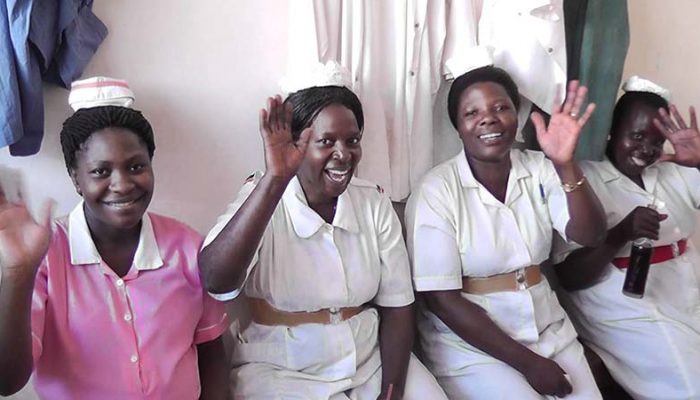Uganda’s output of health scientists is still low yet the demand for health professionals continues to surge. This deficit is being made worse by the number of health professional practitioners who are leaving the country for green pastures. This means that when you train as a health scientist, the chances of getting a job are high. The government of Uganda and private health centers are recruiting each year.
In Uganda, not many high institutions, especially universities, churn out health scientists enough to meet market demand. To bridge the gap, Victoria University in Kampala lined up a number of courses that meet the demand in the market. The dean of faculty of health science at Victoria University, Dr Krishna N. Sharma in an exclusive interview says the university’s main focus is research and community outreaches. He notes that ‘until you achieve these two things, higher education is useless.’
“We don’t want to do research and keep it in our store and library. If it doesn’t reach people then it is useless. I want my students to do useful research and publish it so that it can be useful to people. Students in the faculty of health sciences undertaking nursing course will next year travel to India to have an experience of India nursing skills. The University also has international placements for students. “We want them to learn from international practices and when they come back, they will come back with those skills.”
Victoria University has nice laboratories, library, equipment, good lecturers from across the world, hospital for training and a rich community outreach program. In this article we look at some degree course taught at the University in the faculty of health sciences.
Bachelor of Midwifery Science
This two year post-diploma midwifery science top-up degree program is designed to enhance the student’s ability to use community-oriented, evidence-based approaches in the provision of midwifery care that is responsive to the needs of the community in both rural and urban settings. Midwives work in a variety of settings such as clinics, hospitals and healthcare centres. In the line of work, a midwife may also be involved in other aspects of women’s health, such as sexual and reproductive health, lactation consultancy, childcare and research and policy development.
Midwives have a highly developed knowledge base and many clinical skills, and may find work nationally, regionally and internationally. To be able to be recruited, one must have a Uganda Advanced Certificate of Education or its equivalent and 2 principal passes and Diploma in Midwifery from a recognised Institution and must be certified by the Uganda Nurses & Midwives Council UNMC).
Bachelor of Nursing Sciences
The four year programme is designed to meet the challenges of healthcare delivery. The students will gain the ability to apply a broad base of knowledge, theory and scientific research to the real life practical context, community educational skills to manage people, leadership and management skills needed to fully manage a variety of healthcare scenarios, professional attitude and commitment and accountability to deliver healthcare to high professional standards and demonstrate ethical, legal and professional accountability in practice.
To be admitted candidate must have Uganda Advanced Certificate of Education or its equivalent and Diploma in Nursing from a recognised Institution and must be certified by the Uganda Nurses & Midwives Council (UNMC).
Bachelor of Science in Public Health
To undertake this course, you need a Uganda Advanced Certificate of Education Or a diploma in a related field. A student can choose to study part time or full time. This evidence-based curriculum is designed to provide students with the knowledge and skills to be able to monitor community health by identifying health needs, implementing policies that promote health, evaluating health services and eliminating health disparities.
BSc. Public Health graduates can work in a number of areas in all sectors which include the private sector, public sector as well as civil society. In the public sector they may work within a relevant ministry, a government health organisation, hospital or within the community. In the private sector they may work as researchers, policy analysts or practitioners for medical, pharmaceutical or health insurance companies.
In civil society there is a huge need for public health graduates to work as managers and implementers of NGO health programs, health information analysts, health educators, policy analysts and links to the other sectors. Within the educational field there is a need for public health educators and researchers to join the universities, professional bodies and other educational institutions.
Bachelor of Science in Human Nutrition and Dietetics (BHND)
Dietetics is a profession which applies the science of nutrition in the maintenance of health in each of the life cycle stages as well as to the dietary management of various disease conditions. This four year dietetics degree program equips graduates with the knowledge and skills to practice in any of the 3 key focus areas of the profession, i.e. Therapeutic Nutrition, Community Nutrition and Food Service Management.

